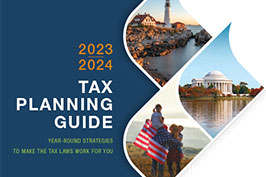Employee benefit plan audit services
If your company offers some type of employee benefit plan, the Employee Retirement Income Security Act of 1974 (ERISA) requires that you must have the plan audited on an annual basis. Employee benefit audits are required by the U.S. Department of Labor and are intended to uncover any areas in the plan that need improvement or areas of concern with regards to how your company is managing your benefit plans.
Companies that provide employee benefit plans for 100+ participants must complete an audit . EBP audits typically include a review of:
- Employee and employee contributions to the benefit plan
- Loans and distributions withdrawn from the benefit plan
- Internal controls surrounding the accuracy and completeness of the participant account
As per DOL standards, and in accordance with IRS, accounting firms must receive specialized training and be given a designation to perform these compliance audits due to their complexity. An EBP audit that is performed by a firm that doesn’t meet established professional standards can result in a failed peer review report, professional liability for the firm, and could put the client at risk.
Testimonial
In 2015 the Department of Labor published an assessment of the quality of the EBP audits performed by CPAS and found that 39% of all EBP audits contained significant deficiencies. In addition, the DOL found that the quality of the audit could be correlated to the size of the firm’s EBP audit practice; firms issuing 1-24 audits had a deficiency rate of about 67%-75%.
What to avoid
Employee benefit plan audits are usually due with a company’s annual tax returns, with extension filings due by October 15 for calendar year-end plans. Severe penalties can be assessed to companies who fail to perform EBP audits or that fail to employ an independent CPA firm to conduct the audit. The IRS penalty for late filing starts at $25 per day and can reach a maximum of $15,000; the penalty assessed by the DOL can run up to $1,100 per day, with no maximum amount.
The Department of Labor has an ongoing program to review EBP audits for the purpose of finding deficiencies. If your accounting firm’s audit is selected for a review, the DOL will determine whether the firm meets licensure as well as peer review requirements.
Substandard auditing or licensing violations could result in a referral of your firm to disciplinary bodies including the Professional Ethics Division of the American Institute of Certified Public Accountants ( AICPA) well as your state’s board of public accountancy. Your company may also be subject to civil penalties for filing deficient Forms 5500 that the DOL rejects.
Working with a CPA that is specialized in EBP auditing reduces your company’s professional risk as well as that of the CPA firm.
Planning ahead
If you are considering hiring a CPA firm to perform EBP audits for your company, GYL CPAs and Advisors, CPA for employee benefit plans, are the CPAs and business consultants that companies count on. Serving companies throughout Southern California, GYL has a specialty niche in performing ERISA audits for employee benefit plans.
CTA – Your tax planning guide

